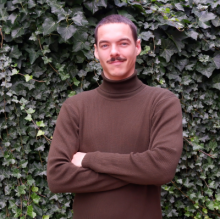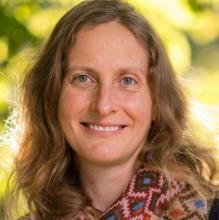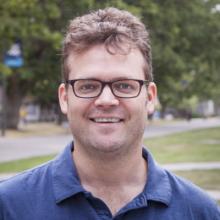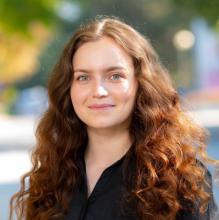Research Description
My research explores peace education and social media literacies among young adults in Medellín, Colombia. This study follows participatory methodologies with a group of undergraduate students who will explore and recognize violence represented and embedded in social media, to then imagine non-violent transformative actions that could improve their communities.
What does being a Public Scholar mean to you?
For me, being a Public Scholar means recognizing that knowledge does not resides outside of society —nor does any process that leads to it. This means, among other things, appreciating the importance of working with others (instead of working on or about them) while committing to promote our research in ways that are more accessible to the people who might benefit from it the most.
In what ways do you think the PhD experience can be re-imagined with the Public Scholars Initiative?
To be a part of the PSI network is a great privilege since it allows me to reimagine how I might engage in public scholarship in two different ways. In the first place, since my research project involves working with young adults in Colombia, it allows me to imagine new uses of digital environments to connect with them from the distance —which is especially relevant as we face travel restrictions due to COVID-19. Second, as I engage with other talented people in the PSI network, I see myself engaging in more interdisciplinary work concerning my dissertation, broadening my view on topics such as digital literacy, social media and peace studies. Finally, PSI provides me with a platform to constantly reflect on how to better engage with the community that I will be working within all the stages of my dissertation.
How do you envision connecting your PhD work with broader career possibilities?
Looking at the outstanding profiles of previous and current members of the PSI, I believe that this opportunity is going to allow me to contemplate more career possibilities beyond the traditional tenure-track career. In this case, while I still envision myself as somebody passionate for teaching, academic service and research, other venues open up such as working with public entities, think-tanks and/or civic organizations.
How does your research engage with the larger community and social partners?
My research involves working primarily with undergraduate students from a university in Medellin, Colombia. However, in the frame of the PSI, I am challenging myself to work with the larger Colombian community involving the use of social media, so participants would be able to promote discussions with other people in the city and the country to create long-lasting transformative actions that connect them with their communities.
Why did you decide to pursue a graduate degree?
I have wanted to pursue a doctorate degree since I participated in my first research project, over ten years ago, where I worked with young students from public schools at the periphery of Medellin to teach them to use media devices to tell their own stories. This led me to complete two master programs (one in Colombia, and one in Vancouver), finally deciding that I wanted to do my doctoral program in Language and Literacy Education —which allows me to integrate an interdisciplinary focus that I have built upon all these years.
Why did you choose to come to British Columbia and study at UBC?
Even from Colombia, my home country, I have heard from UBC as one of the best universities in the world. After I came to Vancouver to complete my MA at Simon Fraser University, I decided that UBC was the best choice for my doctoral program, offering interesting coursework led by amazing faculty. Besides, having the opportunity to work under the tutelage of Dr. Leah Macfayden and Dr. Teresa Dobson was a decisive factor to choose to complete my Ph.D. at UBC. Finally, being part of UBC has offered me the possibility to be a part of the Digital Literacy Centre, closely collaborating with Dr. Kedrick James and other fellow Ph.D. students to explore the integration of digital media to language, literacy, and literary education.
Being a Public Scholar means recognizing that knowledge does not reside outside of society —nor does any process that lead to it. This means, among other things, appreciating the importance of working with others (instead of working on or about them) while committing to promote our research in ways that are more accessible to the people who might benefit from it the most.




